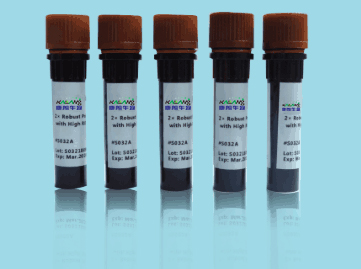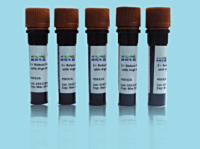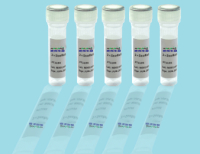

客服电话:021-61998208


Prostate-Specific Membrane Antigen (PSMA) (PT1653) mouse Monoclonal Antibody
Prostate-Specific Membrane Antigen (PSMA) (PT1653) mouse monoclonal antibody
应用:IHC-p 1:100-500,WB 1:500-2000
产品名(Product Name)
Prostate-Specific Membrane Antigen (PSMA) (PT1653) mouse Monoclonal Antibody
货号(Catalog No.)
KL-15926
种类(Category)
Primary antibodies
宿主(Host)
Mouse/IgG1, Kappa
反应种属(Species specificity)
Human
应用实验(Tested applications)
IHC-p,WB
克隆性(Clonality)
Monoclonal
偶连物(Conjugation)
Unconjugated
免疫原(Immunogen)
Synthesized peptide derived from human Prostate-Specific Membrane Antigen (PSMA)
状态(Form)
Liquid
储存溶液(Buffer)
Liquid in PBS containing 50% glycerol, 0.5% BSA and 0.02% sodium azide.
存放条件(Storage)
-20°C/1 year
纯化方式(Purity)
The antibody was affinity-purified from mouse ascites by affinity-chromatography using specific immunogen.
产品背景:folate hydrolase 1(FOLH1) Homo sapiens This gene encodes a type II transmembrane glycoprotein belonging to the M28 peptidase family. The protein acts as a glutamate carboxypeptidase on different alternative substrates, including the nutrient folate and the neuropeptide N-acetyl-l-aspartyl-l-glutamate and is expressed in a number of tissues such as prostate, central and peripheral nervous system and kidney. A mutation in this gene may be associated with impaired intestinal absorption of dietary folates, resulting in low blood folate levels and consequent hyperhomocysteinemia. Expression of this protein in the brain may be involved in a number of pathological conditions associated with glutamate excitotoxicity. In the prostate the protein is up-regulated in cancerous cells and is used as an effective diagnostic and prognostic indicator of prostate cancer. This gene likely arose from a duplication event of a nearby chromosomal region. Alter
特别提示:本公司的所有产品仅可用于科研实验,严禁用于临床医疗及其他非科研用途!








